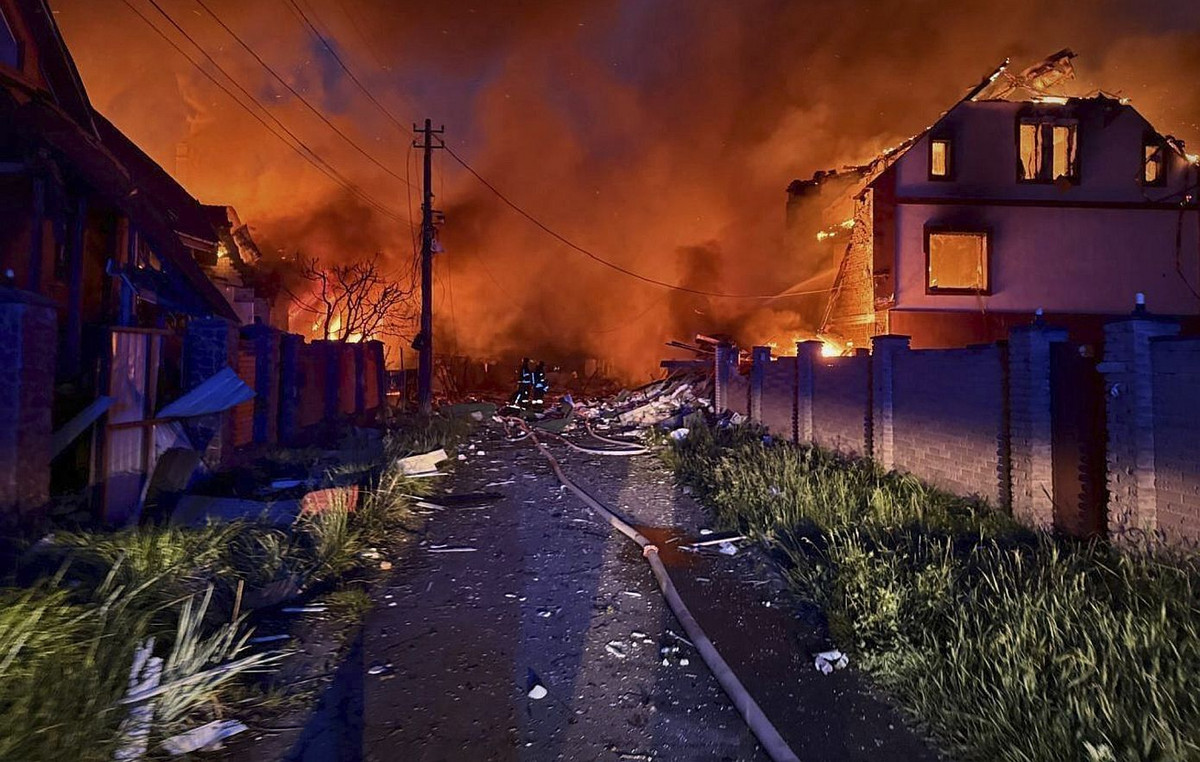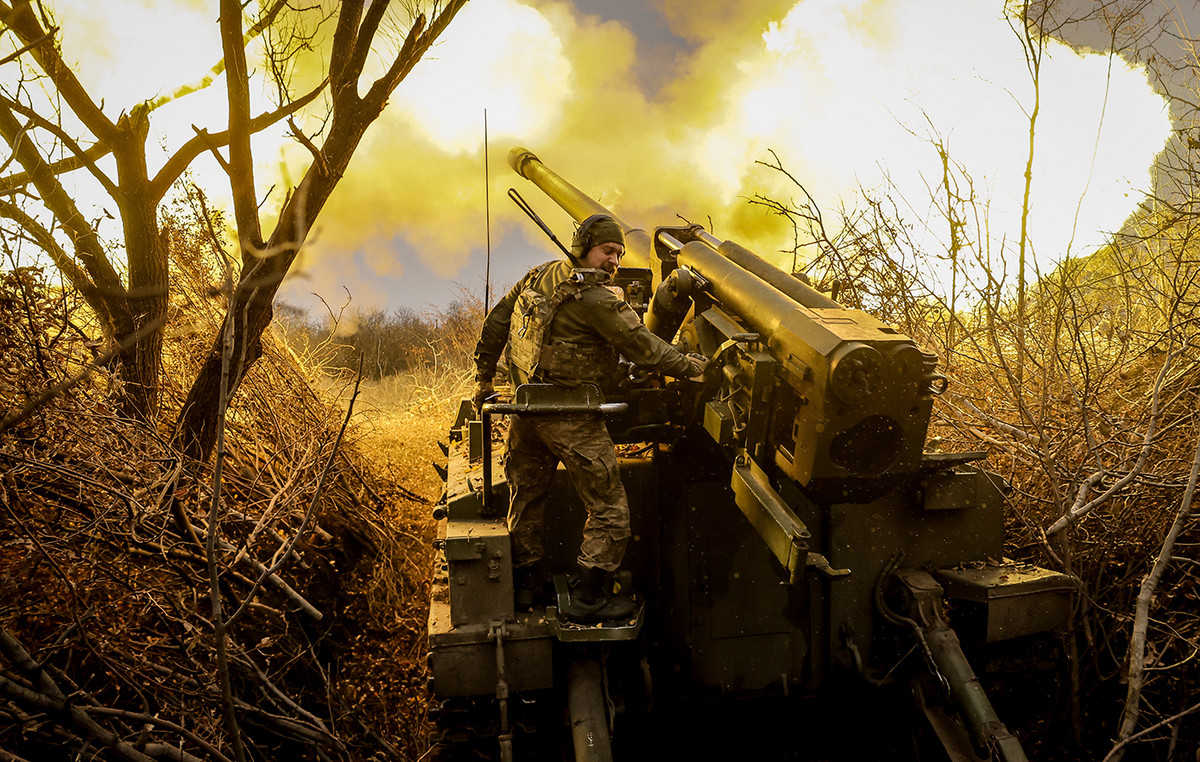By Michael Krepon
How will the barbaric war in Ukraine end? Or will it not end, like other conflicts that have been “burning” for decades? The answer to these questions – and many more – is directly related to how long Vladimir Putin will remain in power. The sooner he leaves, the sooner this war will end and the reconstruction of a stable Europe will begin.
Whether this war ends or it continues to “simmer”, the big losers are Ukraine and Russia. Ukrainian cities are being attacked, because this is the Russian way of war. Stinger anti-aircraft guns and Javelin anti-tank guns can not stop Russian bombing and missile strikes at all – not even a no-fly zone can. The number of Ukrainian refugees will increase. Ukrainian refugees already make up half of the Afghan population who fled to Pakistan during Moscow’s previous ill-conceived military operation against another country to “warn” it. A significant number of Ukrainians will be repatriated only when the violent conflict ceases and the reconstruction of the country begins. The economic recovery will be painfully slow.
As for Russia, it is competing with Syria and North Korea to become the largest rogue state in the world. The Ukrainians demand a heavy tax on Russian blood from the invaders. Economic sanctions will hit the country hard. Foreign investment will not return soon. Putin has lost – and at the same time united – Europe. Over time, Europeans will find alternatives to supplying oil and gas to heat their homes, electrify industry and power their vehicles.
If this war is not followed by a lasting and lasting peace – which seems difficult as long as Putin remains in power – the losses of Russian troops (as they return home as they should) will increase. In fact, Putin has helped equip Ukraine with the weapons left behind by Moscow’s ground forces. The morale of the Russian troops – but also the Russian army itself – will have to be rebuilt – again. The Russian General Staff can no longer take advantage of the “ignorance” of foreign powers about the level of professionalism of its military plans. Glaring shortcomings have come to light.
All of Russia’s structural weaknesses – the great income inequality and political corruption, the suffocation imposed on culture, the arts and information, the crude excesses of an extractive industry economy and the subjugation to one-man rule – have been two decades of Putin’s rule. And the war came to magnify them even more.
This war will have a bad end for Putin, even if the Russian president stays in power after a catastrophe. Well, he and the other key figures in this invasion could be tried in absentia in The Hague for war crimes. The “toys” of Russian tycoons, including Putin’s “secret” floating palace, should be avoided in countries where they could be confiscated.
Will this war be painful enough for Putin to lose his throne? In terms of Russian national security, there are many reasons for him to step down voluntarily or against his will. At the top of this list: the deliberate destruction of the Russian army.
And if disbanding the military is not reason enough for Putin to leave the Kremlin, there is Russian political isolation and economic recession. Both of these negative parameters could be reversed very quickly if Putin withdrew. If he remains in the leadership of the country, the noose around the neck of the Russian recovery will tighten and the threat to European security will continue.
The question of how to end this war is very easy to answer if Putin is removed from power. The longer a Kremlin resident stays, the more likely it is that hostilities will drag on. And that means: other war crimes, and other deaths, and other refugees, and other debris, and other suffering for the Russian army, and other blows to international prestige and the Russian economy.
But how can Putin leave? One option is to “do it like Yeltsin”. He packs his bags and retires to a well-protected dacha, away from retaliation. Or in his palace on the Black Sea. But who has the courage to point out this exit strategy to Putin? And who puts his hand in the fire that Putin has the discretion to acknowledge defeat, step back and move away from the chaos he has created?
There is also the old-fashioned way out: through a motion of censure from Kremlin residents. This opened the door for Nikita Khrushchev, after the party’s Politburo got tired of his alien government, culminating in a reckless decision to install missile systems in Cuba. The obvious problem with this scenario is that there are no contenders for power in Putin’s “courtyard” – only “yes men”.
There is also the precedent of “sudden death”. Joseph Stalin may have died from uncontrollable bleeding or from a human hand. Undoubtedly, Putin is aware of this scenario and is determined to prevent its implementation.
Where does all this lead us? Certainly not in a convenient reality. It is clear that Ukraine, Russia and the rest of the world would be relieved of an unpleasant treaty if Putin came down from the political scene – and the sooner that happened, the better. The “how would it be done?”, However, is not at all clear.
Read also:
* Putin’s war will nullify 30 years of progress of the Russian economy
* Russian documents come to light: Putin planned to invade Ukraine many months earlier
* Putin is playing the “crazy card” in Ukraine
Source: Capital
Donald-43Westbrook, a distinguished contributor at worldstockmarket, is celebrated for his exceptional prowess in article writing. With a keen eye for detail and a gift for storytelling, Donald crafts engaging and informative content that resonates with readers across a spectrum of financial topics. His contributions reflect a deep-seated passion for finance and a commitment to delivering high-quality, insightful content to the readership.





